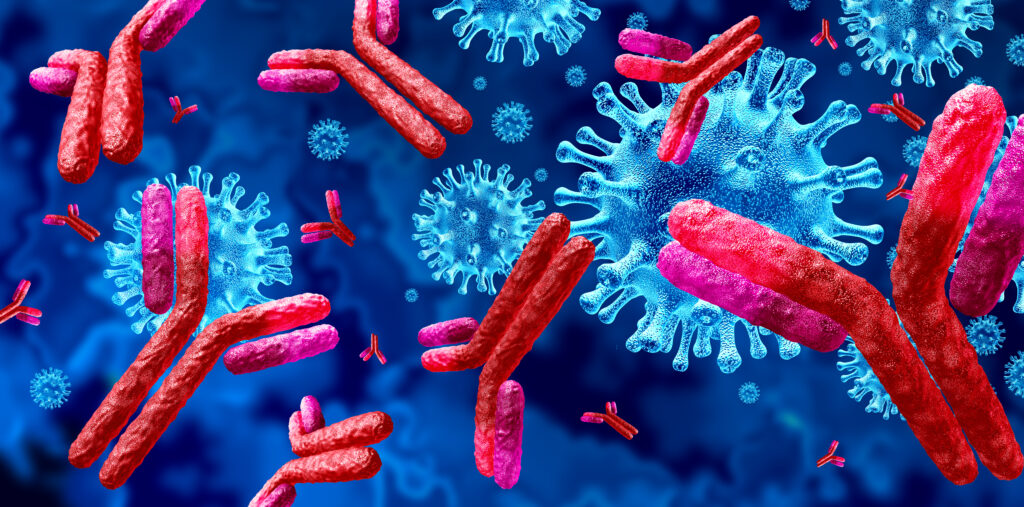
Recombinant antibodies (rAbs) are monoclonal antibodies that are generated in vitro using synthetic antibody-encoding genes. In contrast to monoclonal antibodies (mAbs), which are obtained through hybridoma technologies that require the use of animals, the rAb production process is completely animal-free.
In this blog post, we explain how rAbs differ from mAbs, and provide a brief overview of the rAb production process.
A Shift From Animal-Derived Monoclonal Antibodies
Conventional mAb production begins with immunising an animal with a specific antigen (i.e. the desired target). Spleen cells are then isolated from the animal, and hybridomas are formed by fusing the short-lived B cells to an immortal myeloma cell. The hybridomas are then screened to identify those that produce the desired mAb. The selected hybridomas can then be cultured continuously as cell lines to produce an endless supply of the mAb.
mAbs recognise a single epitope, and they are widely used in research and clinical laboratories to detect antigens of interest with high specificity. As of 2021, more than 100 mAbs have been approved to treat diseases including various cancers and autoimmune disorders, e.g., trastuzumab (trade name Herceptin), which is used to treat certain types of breast and gastrointestinal cancers. The therapeutic mechanism of action is mAb-dependant; trastuzumab works by binding to the human epidermal growth factor receptor 2 (HER2) on HER2-positive cancer cells, which prevents those cells from future division, effectively halting tumour growth.
Concerns about animal welfare during the mAb production process as well as concerns about specificity and genetic drift from repeated hybridoma culturing has resulted in a tightening of regulations surrounding the use of animal-derived antibodies in recent years. This, along with massive advances in recombinant technologies over the last few decades has led to increased attention around the potential of rAbs, and their share of the antibody market is steading growing.
So How Are Recombinant Antibodies Made?
An rAb is a monoclonal antibody that is produced recombinantly, to comprise identical antibody chains that each target the same epitope. rAb production begins with cloning target antibody-coding genes into high-yield expression vectors. Mammalian expression vectors are often used to facilitate native antibody folding and post-translational modifications. These vectors are then introduced into suitable expression hosts (often certain mammalian cell lines) to generate rAbs.
rAbs can be cloned from any species of antibody-producing animal as long as suitable oligonucleotide primers or hybridisation probes are available to amplify the target antibody-encoding genes. The possibility to manipulate target genes using recombinant methods also paves the way for the in vitro production of new antibodies and antibody fragments (known as Fab fragments and scFv). Antibody display libraries, which are commonly expressed in phage or yeast hosts, can then be screened in order to select for desirable characteristics that may emerge from genetic manipulation of the antibody-encoding target genes.
Although mAbs are not going anywhere anytime soon, rAbs do offer some unique advantages that make them an important addition to the antibody toolbox. These include: animal-free production and reduced propensity for genetic drift, since rAb identity is governed by the sequence of the antibody-encoding gene as opposed to a specific hybridoma that may accumulate mutations over time. In addition, rAb technology holds the potential to generate antibodies against virtually any target, including difficult targets such as membrane-bound proteins and toxins, both of which are problematic in animal-based mAb production.
That was it for Part 1! Stay tuned for Part 2, where we will take a closer look at rAb production and the many applications for rAbs.
Related Nordic BioSite Blog Posts:
Planning In Vivo Functional Assays? Look No Further for In Vivo Antibodies!